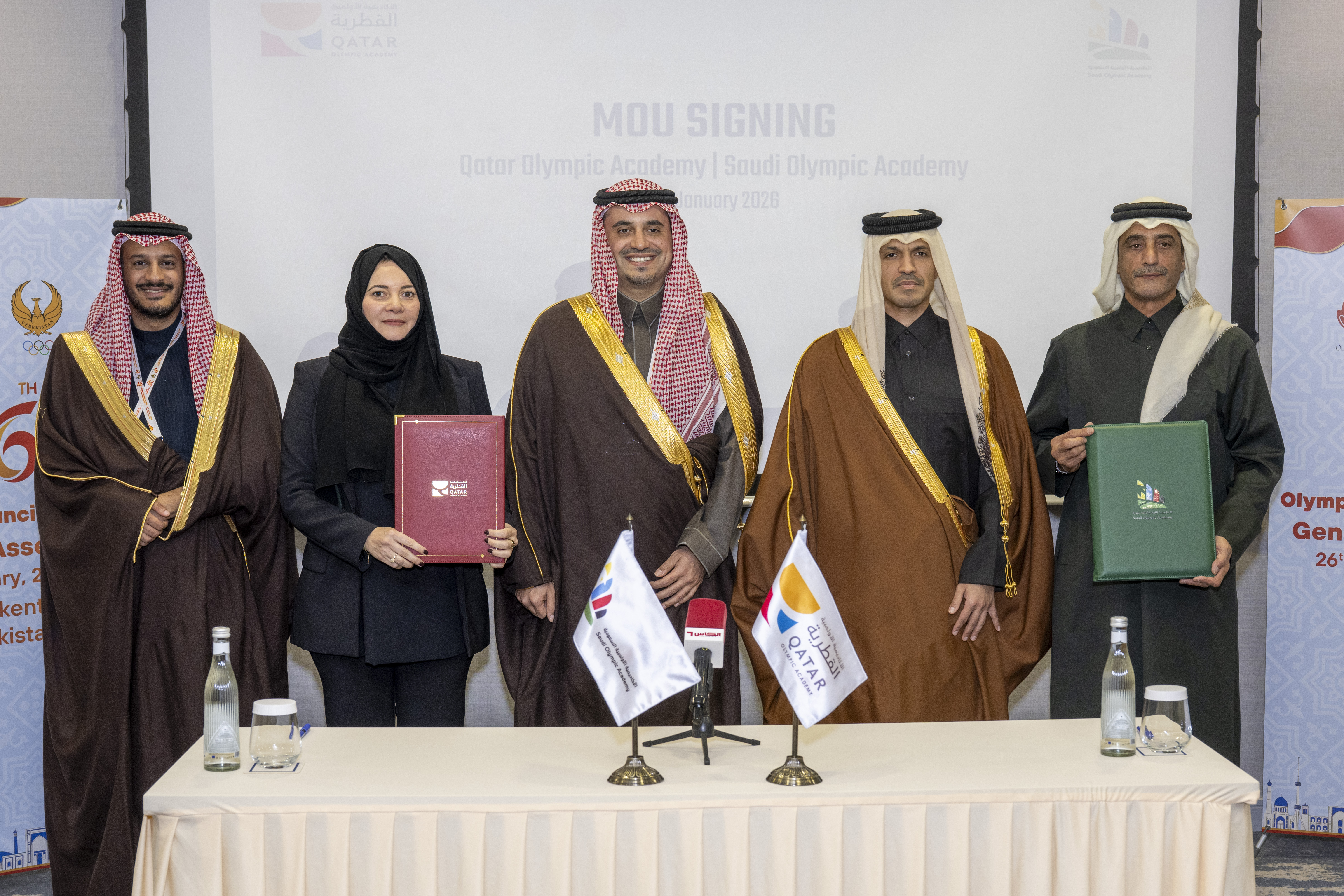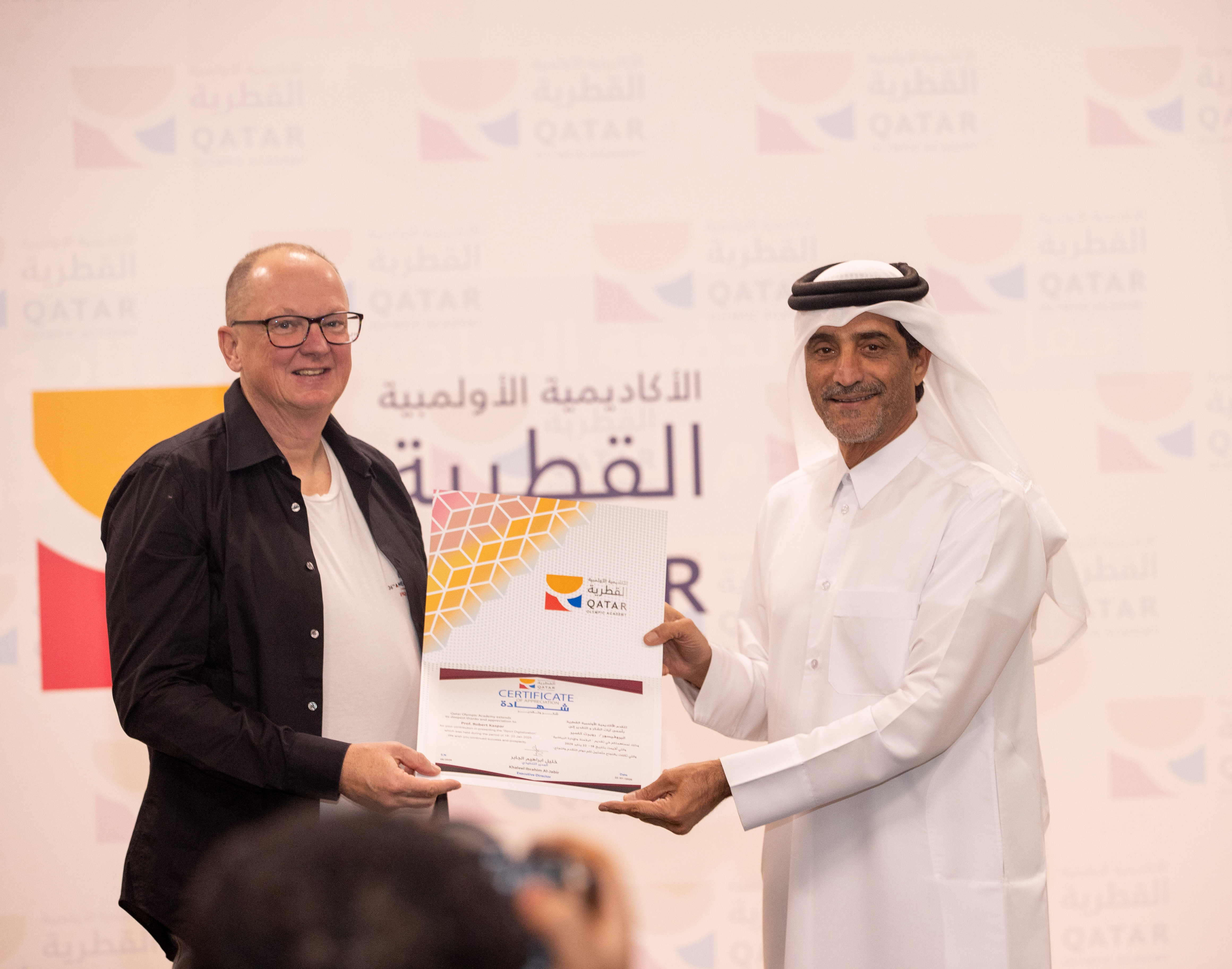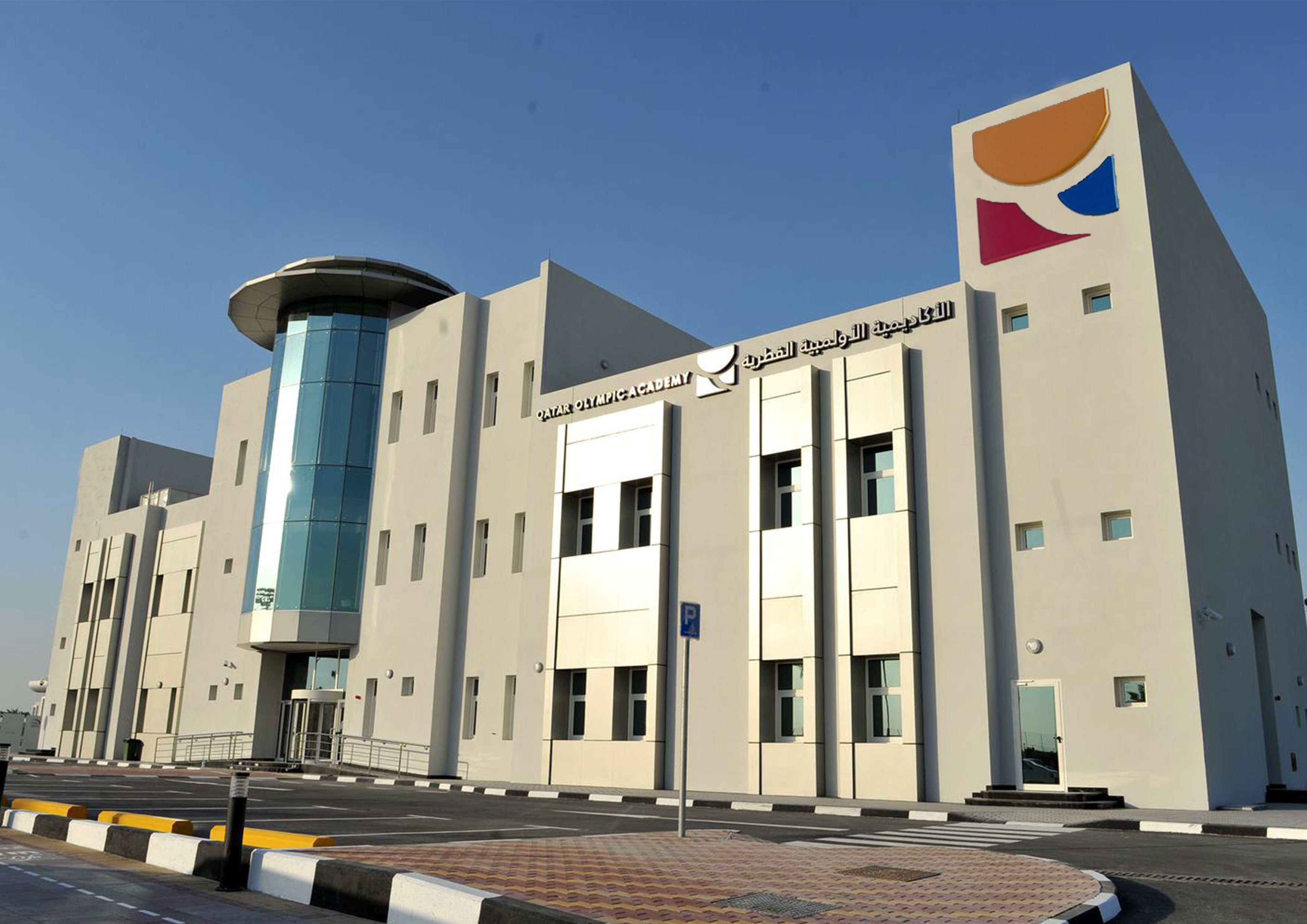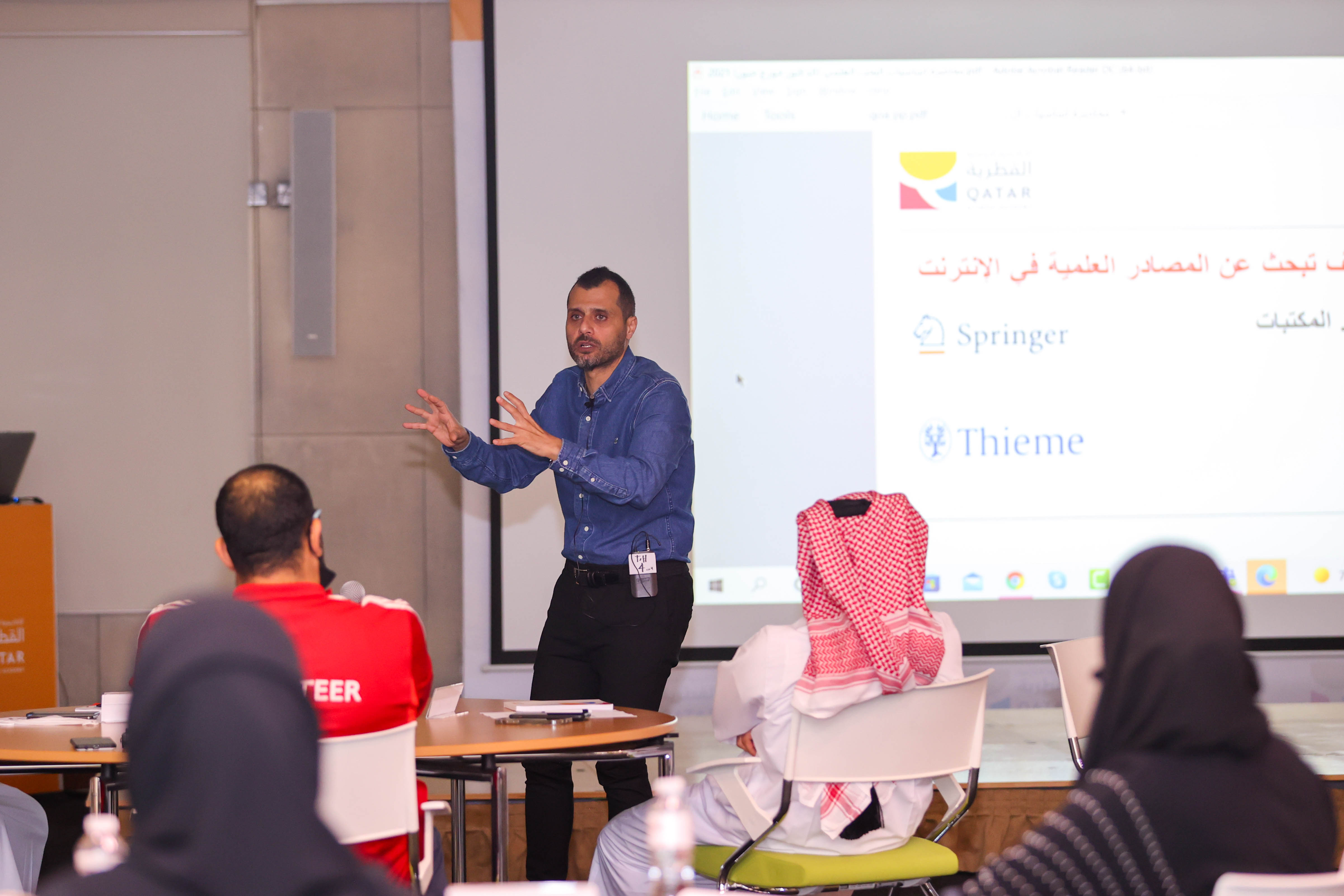Doha:
The diploma consists of seven classes held at the rate of three days per month for seven months, after which the students receive the diploma issued by the International Olympic Committee, signed by Mr. Thomas Bach, President of the International Olympic Committee, as well as the signature of His Excellency Sheikh Jawan bin Hamad Al Thani, President of the Qatar Olympic Committee and Chairman of the Board of Directors of the Qatar Olympic Academy, in addition to the certificate of completion of each chapter, which will be entitled each chapter.
Those enrolled in the diploma program have undergone several conditions, most notably that the student has obtained a bachelor's degree in any major or has passed of Modern Management of Olympic Organizations (level 1 & 2) and the Advanced Sports management course (level 2) held by the Qatar Olympic Academy each year regularly and are considered eligible for the diploma program.
The first semester lectures were presented by Dr. Ali Al Bakri, Head of Sports Development at the Qatar Olympic Academy, Director of the Diploma Program, as well as a lecture by Dr. George Jabbour, Associate Professor in the Department of Physical Education - Faculty of Education at Qatar University.
Dr. George spoke about the basics of scientific research, how to prepare a German research paper, and the methods of reference and citation.
While Dr. Ali Al Bakri addressed the rest of the lectures for three days in which he talked about many topics related to the first chapter, especially the structuring of the Olympic committees, which included many topics intending to understand the impact of environmental conditions on organizations to evaluate the organizational structure and the roles of individuals within them as well as the evaluation of authority (leadership) Regulatory as well as ways to use information technology in this area and effectively manage organizational change.
The students also received a profile of the emergence of the Olympic Movement and the International Olympic Committee as well as assumptions in the conduct of the work and ideas related to the organization, such as appreciation of volunteerism and belief in the importance of the Olympic movement. Also, explained the minutes how to study the areas of practical environments on which the IOC is focused and established its departments or committees, as well as a copy of the organizational structure of the International Olympic Committee.
He elaborated further about the Olympic Charter, the roles of the National Olympic Committees, their independence, the inter-state Olympic hosting and the IOC's relationship with other institutions such as the National Olympic Committees, continental federations and national Olympic and non-Olympic federations.
Speaking about the nature of Olympic sports institutions, their definition and types such as central institutions, the doctor discussed the analysis of the management of persons related to the institution in three steps: identifying the relevant people, then determining the importance of the relevant people by knowing the extent of their impact on work, event or decision-making (and explaining the curve of the extent of contact of persons related to the institution), and then how to treat people with either by trying to acquire them in your class or overlooking them (explain the schedule of strategy to deal with people related to the institution).
Al-Bakri discussed in the last lectures of the first chapter about "governance in institutions", and the meaning of competition, which is the desire to perform the highest level and justice in competition and not to use any illegal tools in competition, and to compete for a role in the development of countries and the convergence of peoples and spread peace and empower individuals and communities, all of which are at risk through the use of steroids and manipulation of the results of matches.
More news

Qatari Olympic Academy Signs Memorandum of Understanding with Saudi Olympic Academy
Tashkent - Uzbekistan – January 26, 2026: The 46th Asian Olympic Council meeting in Tashkent, Uzbekistan, witnessed the signing of an important memorandum of understanding between the Qatari Olympic Academy and the Saudi Olympic Academy, in a step that enhances regional and Gulf sports cooperation. The agreement, signed by the Qatari Olympic Academy with the Saudi Olympic Academy, aims to strengthen cooperation in the field of developing sports training cadres.

Conclusion of the "Digitalization and Sports Management" course
As part of its ambitious strategy to develop sports and administrative cadres, the Qatar Olympic Academy held a specialized training course titled "Digitalization and Sports Management," marking the first of its diverse programs included in the new year's 2026 agenda. The course was presented by Dr. Robert Kasper, Assistant Professor in Sports Management at Schloss Seeburg University in Austria, amid diverse participation from those interested in sports affairs in the State of Qatar and the region as a whole.

The Agenda Included Numerous Programs, Courses, and Workshops in Various Fields
Doha: The Qatar Olympic Academy announced the launch of its agenda for programs and courses for the new year 2026, which included numerous programs, courses, and workshops in various sports and Olympic fields, exceeding seventeen programs, whether in the area of Olympic education workshops, diverse courses, or postgraduate studies in cooperation with a number of international and regional entities.

